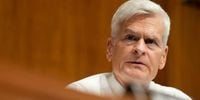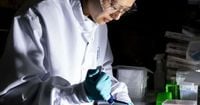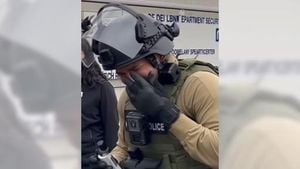On Tuesday, August 5, 2025, the U.S. Department of Health and Human Services (HHS) made a seismic announcement: it would terminate 22 contracts totaling nearly $500 million for the development of mRNA vaccines aimed at protecting Americans from future viral threats. The decision, unveiled by Health Secretary Robert F. Kennedy Jr., has sent shockwaves through the public health and scientific communities, drawing both sharp criticism and enthusiastic applause, depending on whom you ask.
The contracts, overseen by the federal Biomedical Advanced Research and Development Authority (BARDA), were part of the nation's defenses against biological attacks and future pandemics. These projects, many led by top pharmaceutical companies like Pfizer and Moderna, focused on using mRNA technology—the very same platform credited with producing the first widely used COVID-19 vaccines. Those vaccines, according to a consensus of global health agencies and experts, are considered a medical triumph, credited with saving millions of lives and curbing the devastation of the 2020 coronavirus pandemic.
Yet, in a video statement posted to his social media accounts, Kennedy defended the administration's move, arguing that the nation must "move beyond the limitations of mRNA vaccines for respiratory viruses and invest in better solutions." He added, "Let me be absolutely clear: HHS supports safe, effective vaccines for every American who wants one. That's why we're prioritizing the development of safer, broader vaccine strategies, like whole-virus vaccines and novel platforms that don't collapse when viruses mutate."
Kennedy's decision is the latest in a string of actions reflecting his long-standing skepticism toward vaccines. Earlier this year, he pulled back federal recommendations around COVID-19 shots, fired the panel responsible for making vaccine recommendations, and declined to vigorously endorse vaccinations even as a measles outbreak worsened. According to the Associated Press, Kennedy has "put his doubts about shots into full effect at the nation's health department."
For vaccine critics, including the group Children's Health Defense—founded by Kennedy himself—the announcement was cause for celebration. "While we believe the mRNA vaccines should be taken off the market, the announcement is a positive move towards protecting public health," said Mary Holland, the group's president and CEO, in a statement quoted by NPR.
But for many public health and biosecurity experts, the decision is nothing short of alarming. Michael Osterholm, director of the Center for Infectious Disease Research and Policy at the University of Minnesota, minced no words: "This may be the most dangerous public health judgment that I've seen in my 50 years in this business. It is baseless and we will pay a tremendous price in terms of illnesses and deaths. I'm extremely worried about it." Osterholm pointed to the unique advantages of mRNA vaccines, especially their rapid production capabilities—crucial in the event of a new pandemic.
Jennifer Nuzzo, who leads the Brown University School of Public Health Pandemic Center, echoed these concerns. "This is a profoundly disappointing development. When there's the next pandemic, we're going to be caught flat-footed. It absolutely leaves the country vulnerable," she told NPR. Nuzzo and other experts warn that the move could erode U.S. preparedness for future pandemics and even expose the nation to greater risks from bioterrorism. Chris Meekins, a former top biodefense official, put it starkly: "It could put the US at a strategic national security disadvantage and would be a significant threat to the national security of the United States."
So, why the sudden turn away from mRNA? Kennedy claims that these vaccines are unsafe, ineffective, and contributed to the evolution of the coronavirus, arguing that they "cannot keep up with new mutations." In his words: "After reviewing the science and consulting top experts at NIH and FDA, HHS has determined that mRNA technology poses more risk than benefits against these respiratory viruses."
But many outside experts say Kennedy's science is simply wrong. Dr. Peter Hotez, dean of the Baylor College of Medicine and head of the Texas Children's Hospital Center for Vaccine Development, told NPR, "His science is backwards, as it often is. This is a proven technology for emerging respiratory viruses or respiratory virus pandemics. It is extremely safe and has been incredibly effective." Dr. Paul Offit, a vaccine expert at Children's Hospital of Philadelphia, added, "It's certainly saved millions of lives."
The mRNA approach, developed during the first Trump administration, works by delivering a snippet of genetic code that carries instructions for making a viral protein. The body then produces just enough of that protein to trigger immune protection—essentially teaching itself to fight the virus. This method is not only effective but also highly adaptable, allowing scientists to respond quickly to new or mutating threats. Traditional vaccines, by contrast, require growing pieces of the virus in chicken eggs or cell cultures—a process that can take months and is far less nimble.
Despite Kennedy's assertions, the Department of Health and Human Services clarified that "other uses of mRNA technology within the department are not impacted by this announcement." The technology remains in use for approved COVID-19 and RSV shots, though it has not yet received approval for flu vaccines. Moderna, which had been studying a combination COVID-19 and flu mRNA shot, previously argued that mRNA could speed up flu vaccine production—a claim now rendered moot by the cancellation of its $766 million contract, as previously reported by NPR.
Rick Bright, who led BARDA during the first Trump administration, was blunt in his assessment: "It is irresponsible to strip funding from future technologies with great potential and shift it towards outdated old fashioned technologies. We're taking our country from 2025 back to 1940 and we all know that's a recipe for disaster and failure."
Still, Kennedy insists that the administration is not abandoning vaccine innovation altogether. At a news conference in Anchorage, Alaska, he said work is underway on a "universal vaccine" that mimics "natural immunity" and could be effective against both coronaviruses and flu. "It could be effective—we believe it's going to be effective—against not only coronaviruses, but also flu," Kennedy said, as quoted by the Associated Press.
As the debate rages, the broader scientific community worries about the message being sent to the public. Dr. Hotez warned, "The deleterious impact is not only in the contracts that they're canceling but they're trying to make the case to the public that mRNA technology doesn't work very well and it's unsafe. And that's absolutely untrue." Many fear that such rhetoric, coupled with the withdrawal of federal support, will further undermine trust in vaccines at a time when vaccine hesitancy is already a growing problem.
With the U.S. shifting its vaccine-development priorities away from mRNA and toward older, slower platforms, the question remains: will this gamble pay off, or will it leave the nation—and the world—more vulnerable to the next viral threat? For now, the only certainty is that the debate over vaccines, technology, and public health is far from over.





